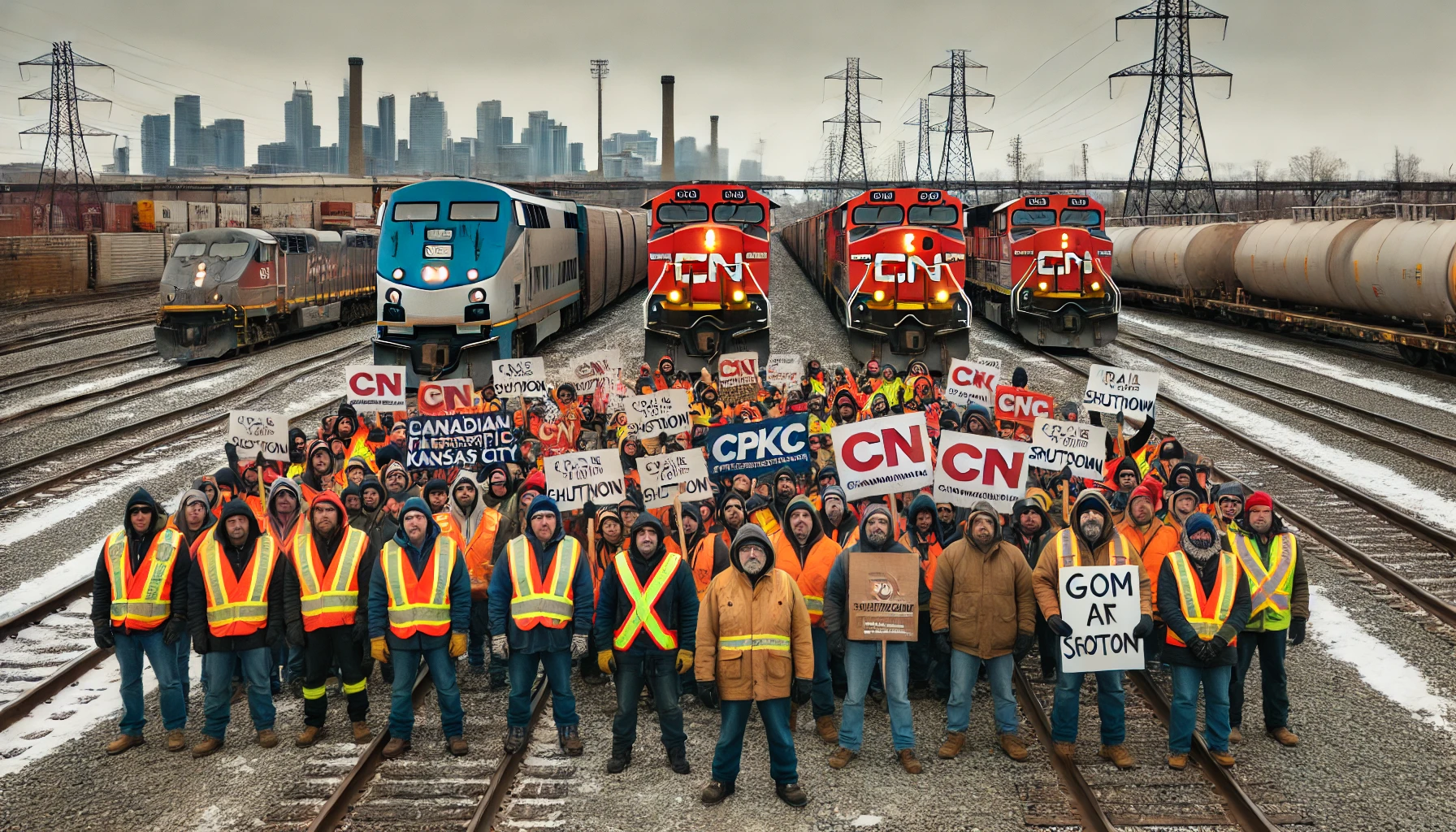
23 Aug Teamsters Union Issues 72-Hour Strike Notice to CN Rail Amid Ongoing CPKC Stoppage
The Teamsters Canada Rail Conference has issued a 72-hour strike notice to Canadian National Railway (CN), just hours after retracting picket lines and resuming operations. The notice, delivered Friday morning, signifies a potential work stoppage involving approximately 6,500 union members.
The Teamsters’ official notice to CN emphasized that the union does not view the ongoing issues as “insurmountable” and remains open to negotiations to avoid further disruptions. François Laporte, President of Teamsters Canada, highlighted that CN’s demands would violate the existing collective agreement, underscoring the union’s commitment to “decent and reasonable working conditions.”
In parallel, the labor dispute with Canadian Pacific Kansas City (CPKC) persists under the supervision of the Canada Industrial Relations Board (CIRB). Following prolonged and contentious contract negotiations, both CN and CPKC locked out a combined total of 9,300 engineers, conductors, and yard workers early Thursday morning, leading to a halt in services. CPKC’s 3,500 workers also initiated a strike concurrently.
Federal Labour Minister Steven MacKinnon intervened by referring the dispute to the CIRB for binding arbitration. The board’s involvement aims to mediate and resolve the impasse, with CPKC indicating its readiness to discuss service resumption. However, the union has contested the minister’s directive, preferring direct negotiations over arbitration.
Jonathan Abecassis, CN’s Director of Public Affairs and Media Relations, stated that the company had no alternative but to enforce a lockout due to the lack of a viable agreement or arbitration resolution. CPKC echoed this sentiment, describing the union’s demands as “unrealistic.”
With the lockout and strike disrupting critical operations, the effects are felt across various sectors. The Railway Association of Canada reports that the companies collectively handle $1 billion in goods daily. The stoppage has led to significant delays in cargo and commuter services, impacting industries such as agriculture, mining, energy, retail, automaking, and construction. Moreover, U.S. railways have been forced to reroute Canada-bound shipments.
As the situation evolves, both unions and companies face mounting pressure from industry groups and provincial governments to resolve the conflict and resume normal operations.

